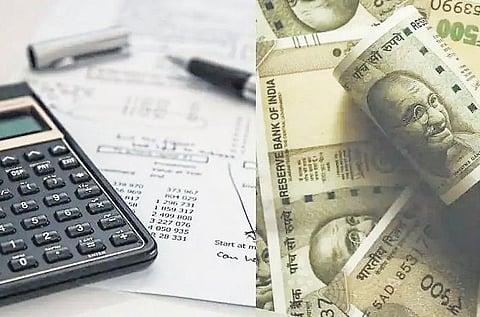

NEW DELHI: After Finance Minister Nirmala Sitharaman announced a slew of changes in the new tax regime, which was introduced in the year 2020, many taxpayers are in a fix – whether to choose the new tax regime over the old.
The government officials are claiming that after the budget changes, the new tax regime has become much more attractive for taxpayers and that more than 50% of the taxpayers will shift to the new tax regime over a period of two years. We talked to some tax experts to get a better sense of both the regimes.
The changes
First, let’s brush up your memory with the changes proposed in the new tax regime. Earlier, in the new tax regime, there were six slabs which have now been reduced to five slabs and the basic exemption limit has also been increased to Rs 3 lakh from Rs 2.5 lakh.
The tax rebate under section 87A has been hiked to taxable income level of Rs 7 lakh from Rs 5 lakh. The highest surcharge rate has been cut to 25% from 37% under the new system. In addition, standard deduction of Rs 50,000 has been introduced from FY24 for salaried people and pensioners.
Also, the basic exemption limit would be the same in both the tax regimes for senior citizens at Rs 3 lakh. The cess on income tax amount continues to remain same in both the tax regimes. The cess of 4% will be levied on the income tax amount.
Interestingly, the government has not touched the old tax regime. It will remain the same with three income tax slabs in FY24. Also, the income tax slabs differ for an individual in the old regime as per his or her age and residential status. Those who are below 60 years of age, the basic exemption limit remains the same at R2.5 lakh in the old tax system. Meanwhile, for the senior citizens with age above 60 years and below 80 years, the basic exemption limit is Rs 3 lakh. For super citizens with age of 80 years and above, the income is exempt upto Rs 5 lakh.
The old vs new
For obvious reasons, people who have just joined the workforce and are earning up to Rs 7 lakh per annum will go for the new tax regime, say experts. “Which regime is useful? Well, this question is like what is the right age to get married. There is no straight answer to the question. It largely depends on the income, investment commitments and position of the taxpayer,” said CA Chetan Daga, who is a founder of AdvantEdge Consulting.
“Certainly, a person with an income up to Rs 7.5 lakh would opt for the new regime. But as income rises, the personal investment profile, and existing obligations will come into play,” Daga added. If we draw a comparison between both the regimes, then the new tax regime is simpler. The government is also aiming for the simple version going forward.
People with income up to Rs 7.5 lakh per annum don’t need to invest in or contribute towards government-approved tax-saving investment options. They will have more money in their hands, which they can put in investment instruments or other purposes as per their need.
According to chartered accountant Avinash Gupta, managing partner in chartered accountancy firm APT and Co LLP, people who have exemptions and deductions upto Rs 3.75 lakh and having income up to Rs 15 lakh per annum, may switch to new tax regime.
Chartered accountant Ved Jain, who is a former president of the Indian Institute of Chartered Accountants of India (ICAI), echoed the same observation. He said that people with income between Rs 7 lakh and Rs 15 lakh per annum will have to weigh both the tax regimes for tax savings.
Those who have income up to R7 lakh and more than R15 lakh, the new tax regime will be preferable.
“On Rs 15 lakh, tax in the new regime is less by Rs 1,12,500. In order to cover this in the old regime, you must have an investment of Rs 3,75,000,” Jain said. He also clarified that the new slabs are not applicable to HUFs and non-resident Indians.
“For NRIs, preferably the old regime will suit them as they are getting exemptions. If he or she hasn’t invested in any instruments or done any savings, then the new regime will suit them,” stated Jain. Same is with HUFs, he added.